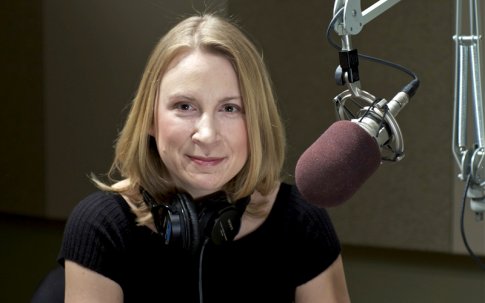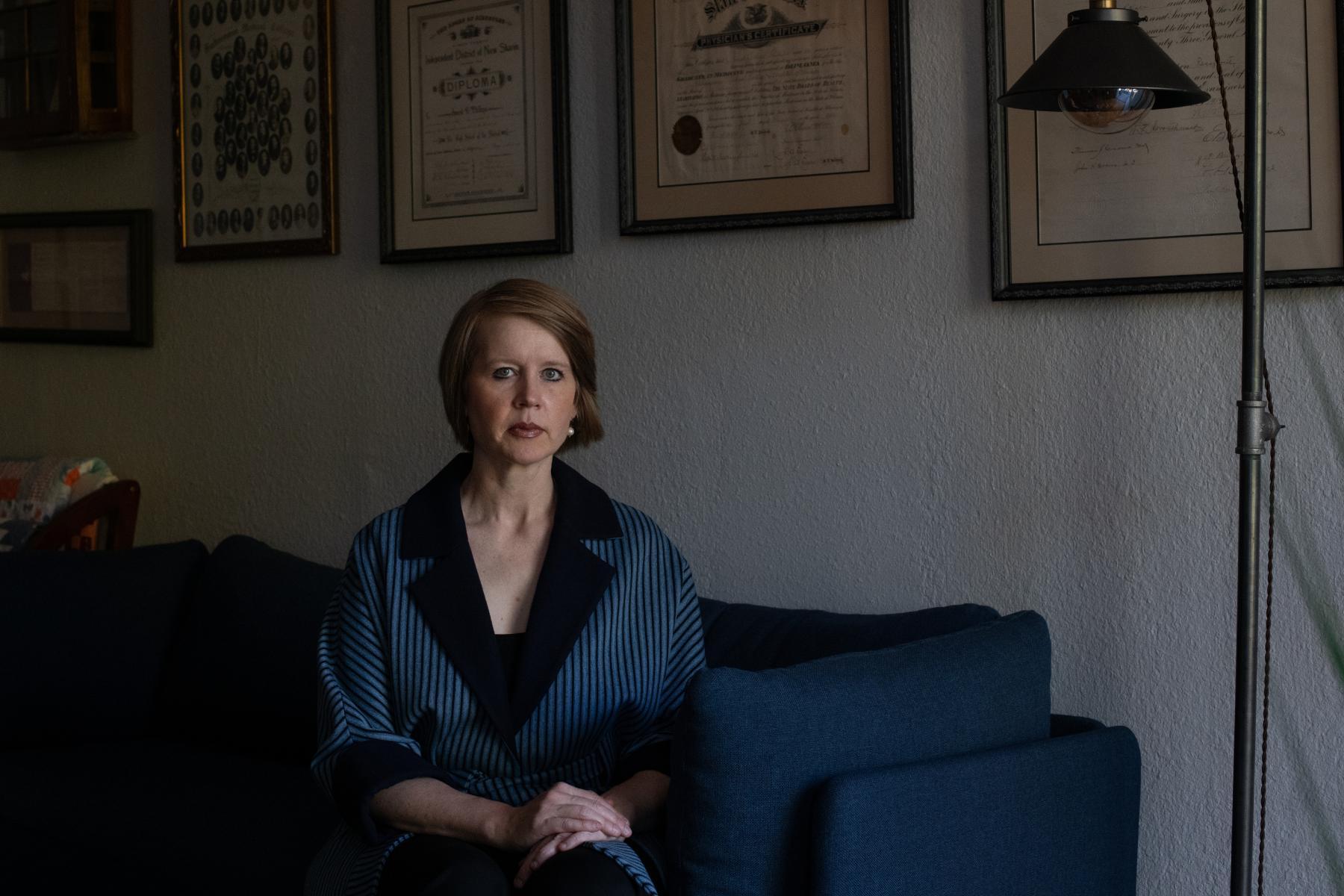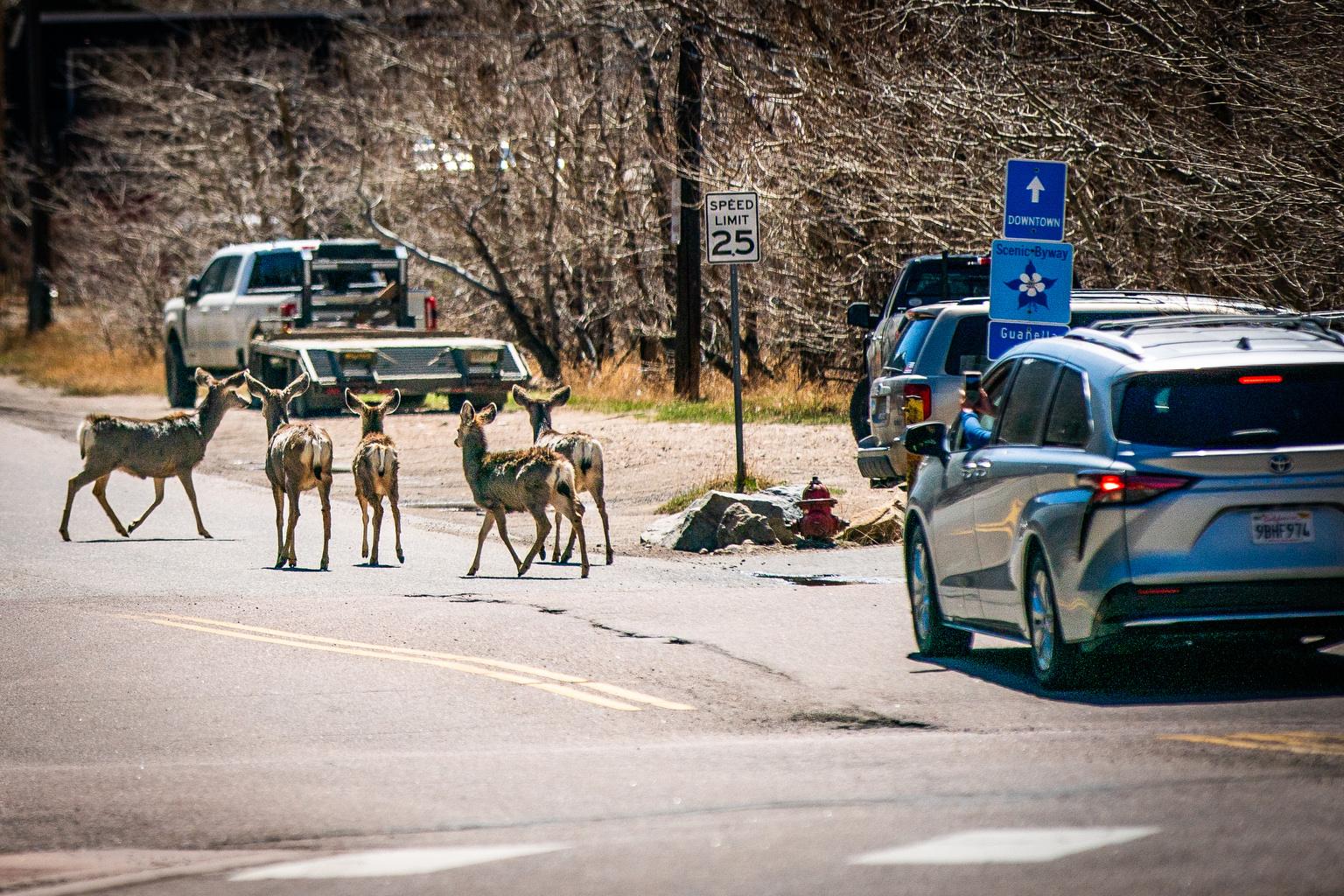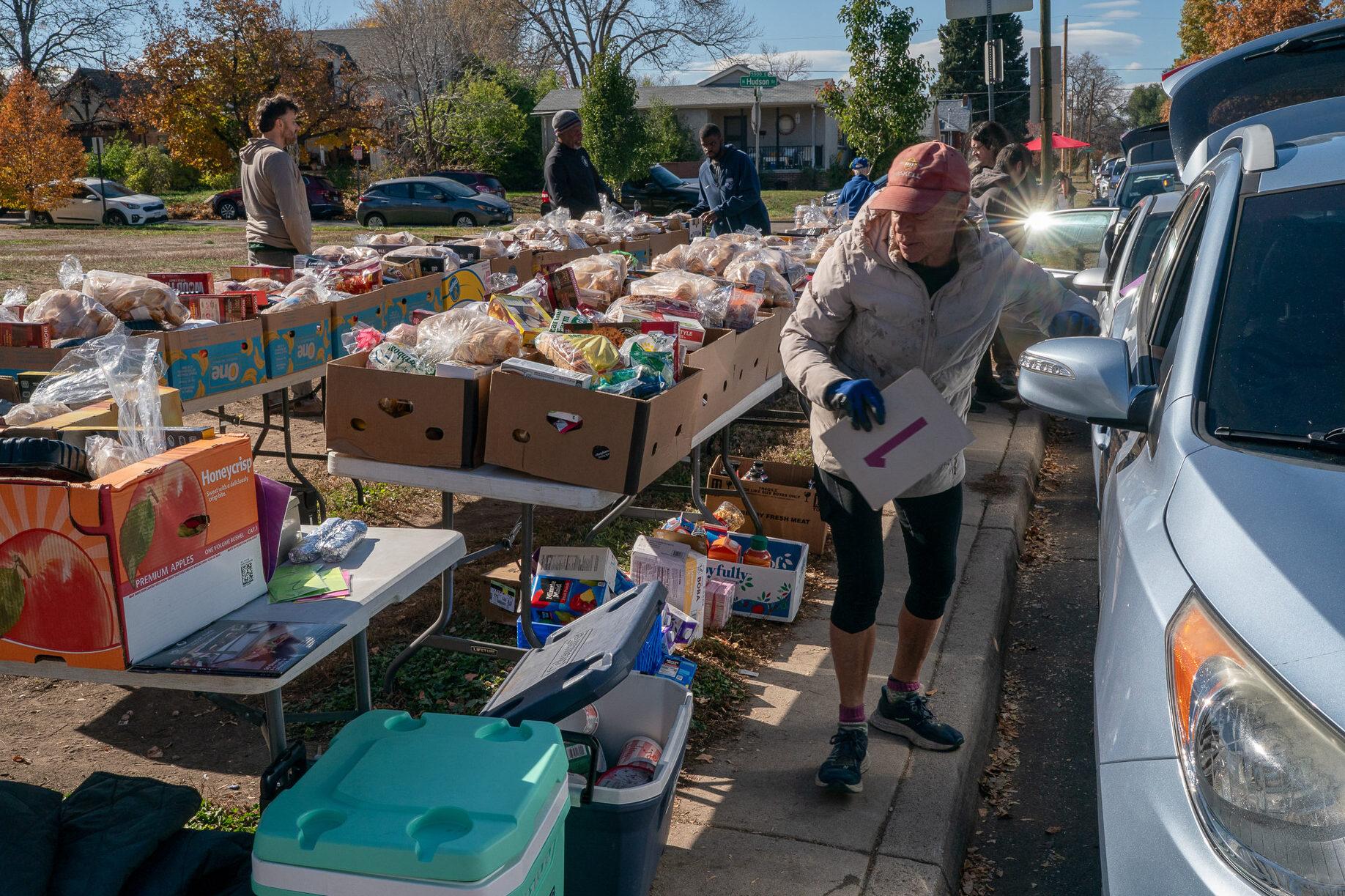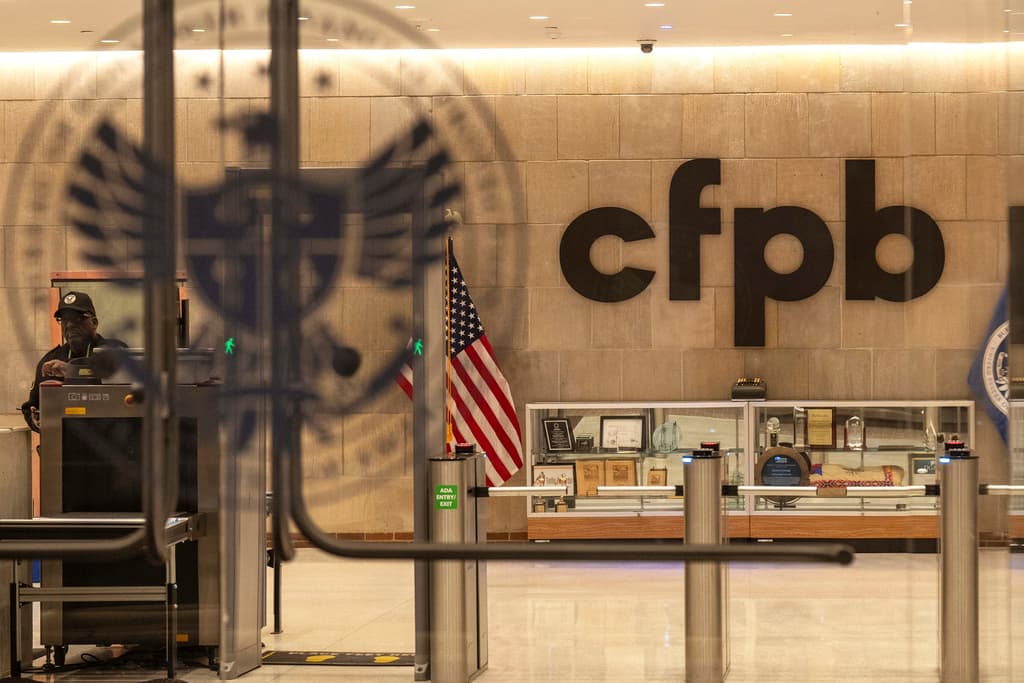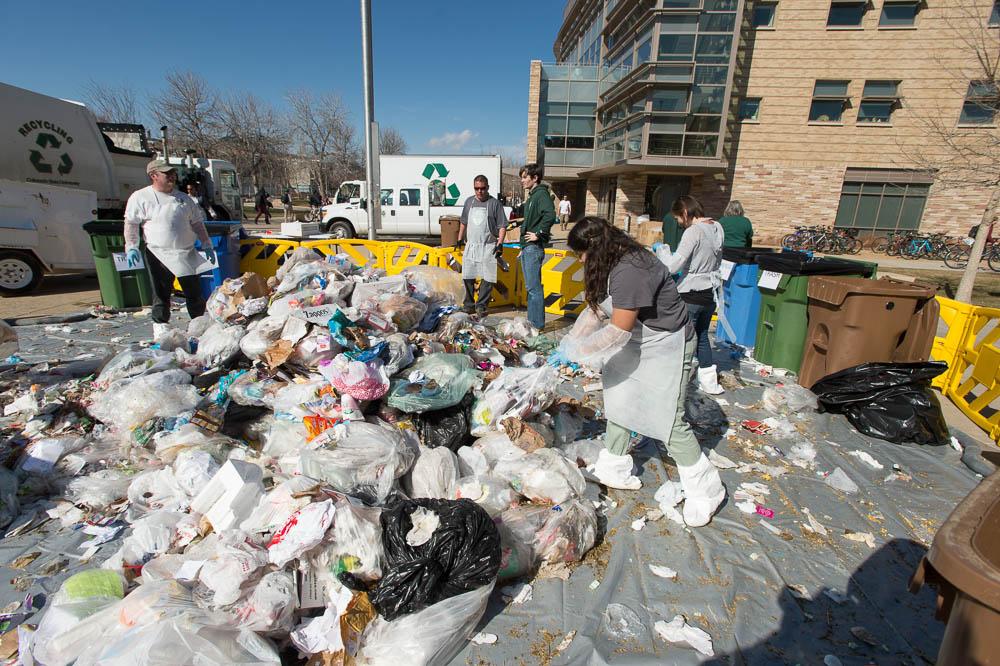
Volunteers sorted through about a ton of garbage to get a sense of how much of that trash could have been recycled or composted instead of headed for the landfill.
The audit happens during RecycleMania, an inter-collegiate competition that encourages students around the country to recycle more.
Colorado State University Director of Communication and Sustainability for Housing and Dining Services Tonie Miyamoto says the school started performing the annual audit a few years ago and the percentage of trash that could be composted or recycled has gone down.
"When we first started doing the waste audit, only 20-some percent of what was thrown away was true trash," Miyamoto says. "Last year that number was 38 percent."
Ideally, Miyamoto says the school would be at "zero waste,” diverting everything from landfills.
Miyamoto says the school's new composting program is helping keep food and some packaging waste out of trash bins.
"We only started that program 3 years ago, so it’ll be from zero three years ago to 300,000 pounds in 2013. It’s an amazing accomplishment," Miyamoto says.
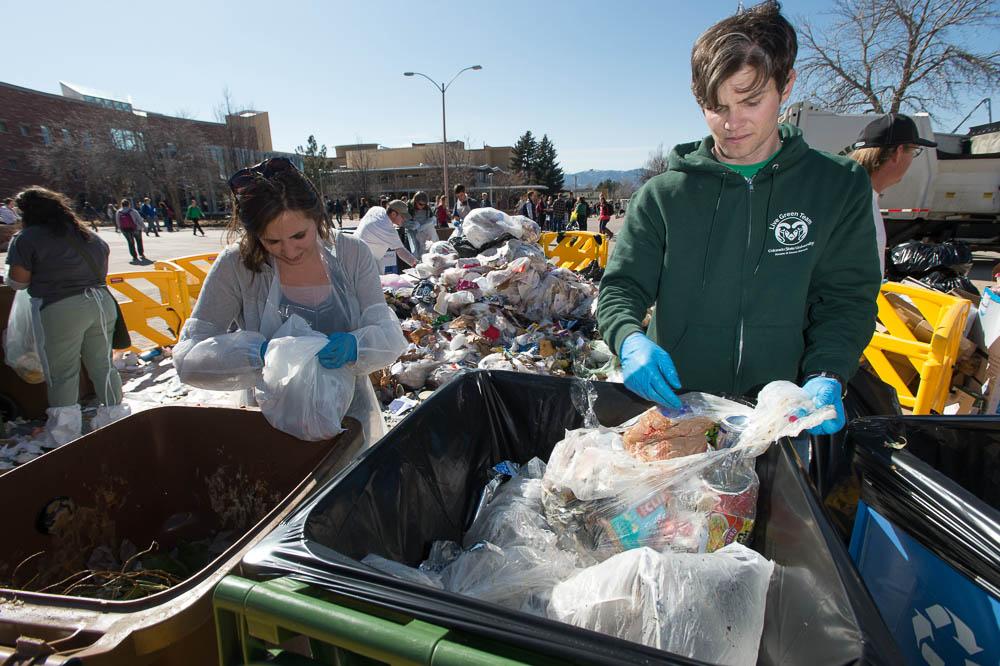
One of the biggest challenges to diverting more trash is getting enough compost bins on campus and the university’s composter is already taking all it can.
There isn't funding at the moment to expand its reach but the school is working with the city of Fort Collins to send extra compost to an energy production facility.
CSU recently received the highest ranking in the country on an assessment by the National Association of Sustainability in Higher Education.
